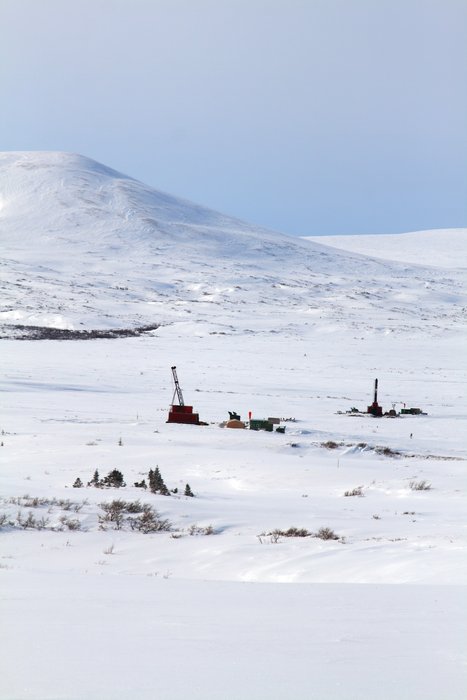Keystone Center Dialogue on Pebble Mine
Last modified: 12th August 2019

(Author’s Note: Because relatively little information about the Keystone Center dialogue is available online, parts of this article are based on our interviews with people involved, including the Keystone Center itself and some of the independent science panel experts)
Summary
In 2007, the Pebble Limited Partnership (PLP) brought the Keystone Center, an organization that specializes in convening stakeholder dialogues, into the discussion about the proposed Pebble Mine in southwest Alaska. The Center is currently overseeing a multi-stage dialogue designed to identify and discuss issues concerning potential development of the mine, particularly relating to public evaluation of PLP baseline data.
Some opponents of the mine have raised concerns about the neutrality of the process since the Center was hired by the mining company. Additionally, some people feel that there has been insufficient consideration in the dialogue of the “no mine” option. Lastly issues have been raised in regards to the fact that Keystone appears to be holding PLP science to a different (lower) standard than science conducted by non-PLP scientists. As a result of all these concerns some parties have expressed preference for the EPA Bristol Bay Watershed Assessment over the Keystone Process, though the Keystone Center argues that they are not exclusive.
Keystone Center
“The Keystone Center seeks to solve our society’s most challenging environmental, energy, and public health problems. We bring together today’s public, private, and civic sector leaders to confront these issues and we arm the next generation with the 21st Century intellectual and social skills required to effectively approach the questions they will face.”
Headquartered in Keystone, Colorado, the Keystone Center is an independent, non-profit consulting group founded in 1975 to help resolve contentious problems in environmental, health and education policy. The Center seeks to employ empowerment theory, a process by which individuals and groups gain the capacity to solve problems through greater access to information and resources.
In the particular case of the proposed Pebble Mine, the role of the Keystone Center is to convene a series of independent science panels to help stakeholders evaluate PLP’s baseline studies and draw their own conclusions. The dialogue is intended to ensure that everyone has access to all appropriate information in order to make an informed decision about the mine. The Keystone Center will not directly make recommendations for or against the mine, although panel experts may do so.

History and Draft Report
The Pebble Limited Partnership hired the Keystone Center in late 2007. In the spring of 2008, the Center interviewed about 90 people in Southwest Alaska with an interest in or concern about the mine. In September 2008 they produced a “Draft Report Stakeholder Assessment and Dialogue Feasibility Study for the Proposed Pebble Project Southwest Alaska”, summarizing the concerns many people have about the mine, and recommending a dialogue process for discussing those concerns.
The report recommended a Keystone Center dialogue with three components:
-Independent science panel events (to review baseline data, and assess the credibility of data collection and analysis)
-A joint fact-finding process to address concerns and questions that come up during the Science panel discussions.
-A project planning advisory which would engage stakeholders in advising PLP in the design of a realistic mining proposal that could be evaluated by a panel of experts
Past “dialogs”
According to the Keystone Center, their plans for stakeholder engagement from the draft report will be revised and then released as a final report. Changes will include a discussion of the “no mine” option and more details regarding the science panels. The release date is currently expected in early 2013.
The first stage of the dialogue process was a series of science panel events, that began with a webcasted panel discussion on “Responsible Large-Scale Mining: Global Perspectives” on December 3rd, 2010 in Anchorage. The overall goal of the first panel was to present broad perspectives on the principles, practices, criteria and standards that experts use to define “responsible” mining. Read our blog post about the first panel discussion here or watch videos of the presentations here.
Subsequent panel discussions were delayed until October 2012 while waiting for the release of the baseline data from PLP. These panels allowed independent experts to review the baseline data prepared by Pebble in a public forum. The 2012 panels focused on Geology and Geochemistry, Hydrology, Water Quality, Fisheries and Marine Ecosystems and Socioeconomic, Cultural, and Subsistence Conditions (see the videos here). Numerous complaints were raised at this stage about the opaqueness of PLP data and the fact that Keystone limited testimony by experts other than the ones chosen for the panel. See information about our testimony here.
The final panel discussions took place on May 6th and 7th, 2013 in Anchorage. These panels discussed wetlands, vegetation, wildlife and threatened & endangered species. The talks will be posted here.
Controversy
Because the PLP mining company hired the Keystone Center, some stakeholders have voiced skepticism about Keystone’s motivation or ability to be neutral and independent. The Keystone Center insists there is no conflict of interest. The Center emphasizes that their clients are seldom neutral, but the clients value the independence and objectivity that the Center is known for.
Nonetheless, during the interviews for the 2008 draft report, the Center encountered at least two (unnamed) advocacy organizations and three Native villages (Nondalton, Ekwok, and New Stuyahok) who refused to talk to the Center for this reason. Since then, organizations such as Trout Unlimited and Earthworks have publicly questioned whether the Center can be independent given contractual obligations to Pebble. However, some of the stakeholders who were initially opposed to the involvement of the Center have since agreed to be part of the dialogue.
A coalition of non-PLP scientists working on the Pebble Project has agreed to work with Keystone moving forward, but has expressed concern that Pebble will not be held to the same standards for transparency and accessibility.
Further Reading
Created: Jan. 19, 2018